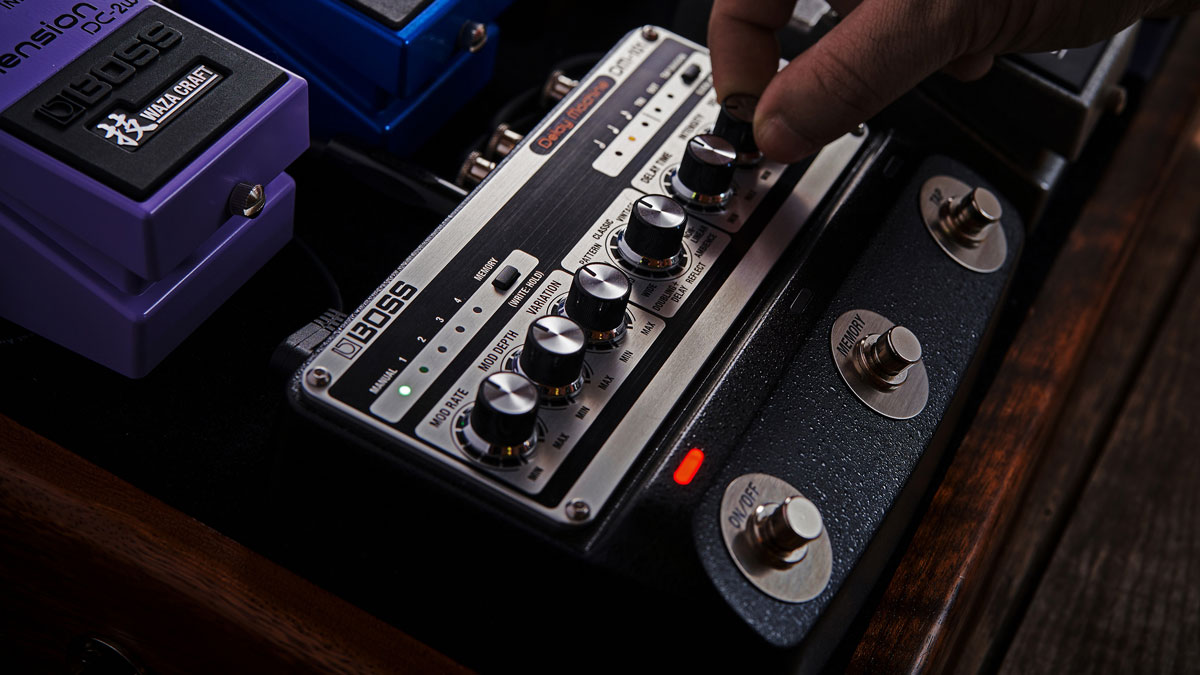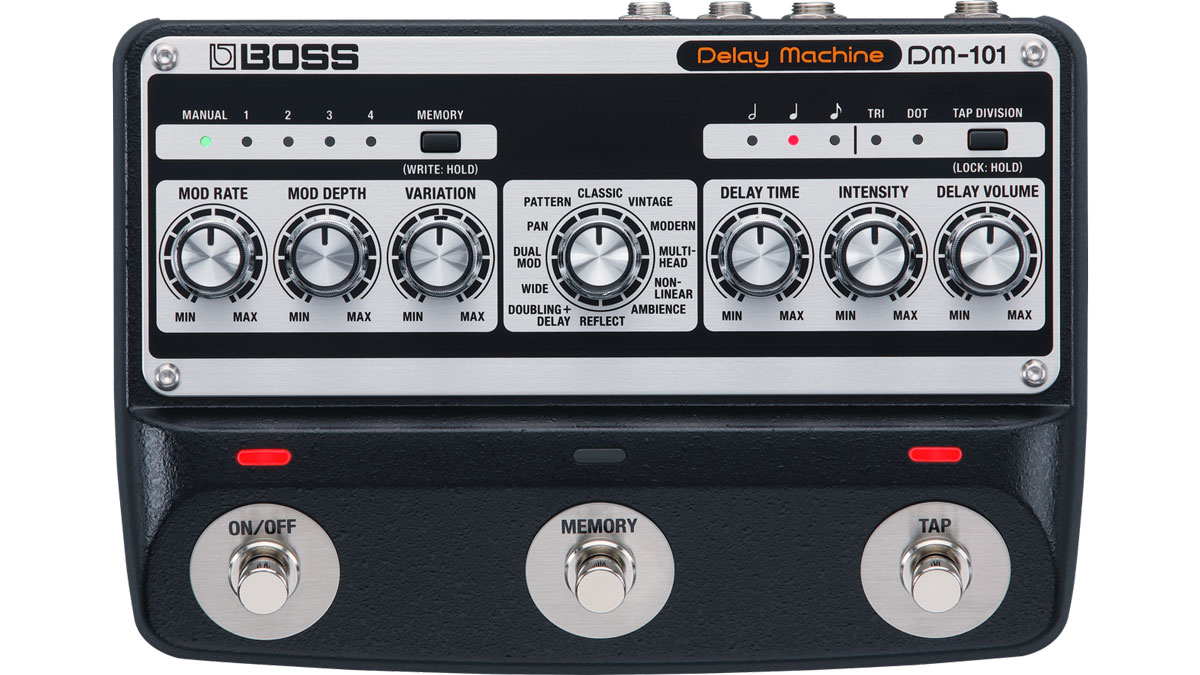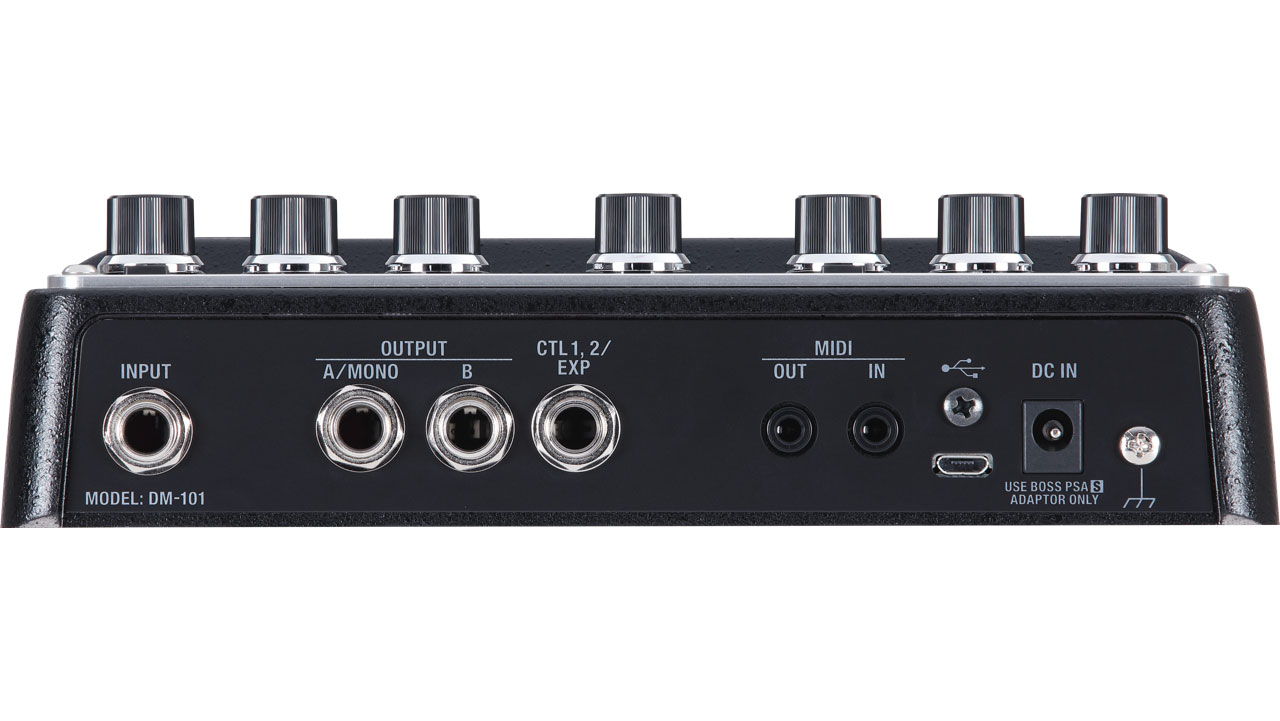The ultimate analog delay pedal? Boss unveils the all-powerful DM-101 Delay Machine
The feature-stacked stompbox combines all-analog repeats with modern CPU control – and it could be a game-changer in the world of analog delays

Boss has unveiled the DM-101 Delay Machine, an analog delay pedal that takes the format to the absolute limit.
The DM-101 features eight BBD (Bucket Brigade Device) chips, which keeps its actual delays pure analog, but adds CPU control, presets, MIDI and a lot more besides.
BBDs emerged in the 1970s on the first analog delay units, including Boss’s classic DM-2, and tonehounds continue to swear by their warm, filtered repeats.
By utilizing modern CPU control, Boss aims to deliver the versatility of a digital delay pedal combined with the tone of an authentic analog unit – and on the face of the specs, it’s hard to argue.
The pedal features 12 modes, including a traditional analog delay with up to 1,200ms of delay time, a DM-2-inspired tone, multi-head offerings, and six stereo settings that highlight the pedal’s unique stereo field.
Boss is promising everything from “gritty vintage echoes” to modern analog tones with “extended high-frequency clarity”, so it’s fair to say the pedal goes far beyond your typical ‘dark’ analog delays.
Naturally, there are controls to adjust the pedal’s modulation – BBD chips are, of course, staples in classic analog chorus designs, too – as well as tap tempo to adjust the delay time, with an onboard switch to tweak the note division. There’s also a Variation knob that adjusts specific parameters per mode.
Get The Pick Newsletter
All the latest guitar news, interviews, lessons, reviews, deals and more, direct to your inbox!
Other modern features that bring the DM-101 in line with contemporary digital units include four onboard memories, MIDI ins and outs (allowing for up to 127 user memories), MIDI sync and wet/dry rig compatibility.


Then there’s selectable carryover to keep trails ringing out when the pedal is bypassed and the option of hooking up external footswitches and an expression pedal.
And, in a neat aesthetic touch, the old-school enclosure pays homage to Boss’s first analog delay, the DM-1.
Boss has billed the DM-101 as “the ultimate analog delay pedal”, and looking at the competition, it makes a serious case.
Tap tempo-equipped analog delays are nothing new – look at MXR’s Carbon Copy Deluxe or DOD’s Rubbernecker – and the Seymour Duncan Vapor Trail Deluxe added presets and a wealth of onboard effects to the format in 2021. But Boss has gone one further in just about every department here, making the DM-101 to analog delay what the DD-500 is to digital.
Of course, the price reflects that, given the DM-101 will cost $499 when it hits stores in July. In the meantime, head over to Boss for more info.

Mike is Editor-in-Chief of GuitarWorld.com, in addition to being an offset fiend and recovering pedal addict. He has a master's degree in journalism from Cardiff University, and over a decade's experience writing and editing for guitar publications including MusicRadar, Total Guitar and Guitarist, as well as 20 years of recording and live experience in original and function bands. During his career, he has interviewed the likes of John Frusciante, Chris Cornell, Tom Morello, Matt Bellamy, Kirk Hammett, Jerry Cantrell, Joe Satriani, Tom DeLonge, Ed O'Brien, Polyphia, Tosin Abasi, Yvette Young and many more. In his free time, you'll find him making progressive instrumental rock under the nom de plume Maebe.
“Our answer to everything players have asked for and more”: Neural DSP’s Nano Cortex had one major drawback – but now it’s been addressed with a huge free firmware update that takes on Kemper and TONEX
"The ability to use this as a midweight MIDI brain for a gigging setup is what makes it unique.": Walrus Audio Canvas Clock review










